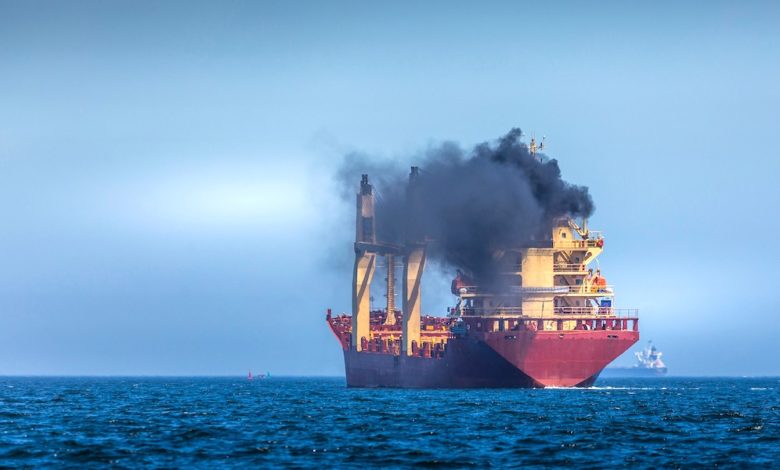Shipping leaders set out plans to deliver on IMO emission targets

60 maritime organisations and government partners have agreed on a course to deliver on the International Maritime Organization (IMO)’s net zero targets by or around 2050 at Shaping the Future of Shipping, an event hosted by the International Chamber of Shipping and the government of the UAE on the sidelines of COP28 in Dubai.
More than 300 leaders, including over 30 nationalities from across the world, from the entire energy-maritime value chain convened, to work together to deliver a robust regulatory outcome at the IMO negotiations in March 2024 at MEPC81. The summit built on the discussions that have taken place throughout COP28, to determine ambitious solutions to advance infrastructure, fuel availability and financing.
“Decarbonisation is bigger than any one industry or government but what is clear is that to be successful in meeting our climate targets the world will need shipping. We know that there are always announcements and noise here at COP meetings, but beyond the razmataz, there are detailed negotiations and talks. This is what today was about,” said Emanuele Grimaldi, chairman of the International Chamber of Shipping, said Emanuele Grimaldi, chairman of the International Chamber of Shipping, opening the summit.
Melina Travlos, president of the Union of Greek Shipowners and chair at Neptune Shipping Lines, said in the keynote address: “Today at this summit we are called to meaningfully address the challenges ahead and look to seize the opportunity. And it is a unique opportunity, not only to shape a sustainable future for shipping, but also to play a defining role in helping the whole global economy accelerate towards net zero. Collaboration, determination, and commitment from all of us are key to successfully bringing effective decarbonisation within our grasp.”
Arsenio Dominguez, International Maritime Organization secretary-general elect, said: “Yes, we have the IMO strategy, it was a great achievement last July. But it is what comes next, what are we going to start doing to make that a reality? At IMO we haven’t stopped. We are already carrying out the impact assessment on the fleet and on states in order to provide the necessary information for the marine environment protection committee meetings that will take place next year and that will lead us to those measures that will be adopted by 2025, implemented in 2027 and that will make these objectives of the strategy a reality, both technical and economic measures.”
Anders Hammer Strømman, lead author of Transport Sixth Assessment Report by the Intergovernmental Panel on Climate Change, delivered a presentation that stressed the urgency of the issue to decarbonise.
He concluded: “There is hope. The options are available and the time for action is now. At the same time our synthesis report of most of this year provided a warning. The current pace and the scale of climate action are insufficient to tackle climate change. And as you shape the future of shipping remember that our choices will reverberate for hundreds even thousands of years.”
The summit was part of the COP28 presidency programme and hosted under the patronage of the UAE Ministry of Energy and Infrastructure. The event was organised by a coalition of leading maritime industry bodies and coordinated by the International Chamber of Shipping (ICS), in partnership with the Emirates Shipping Association.
